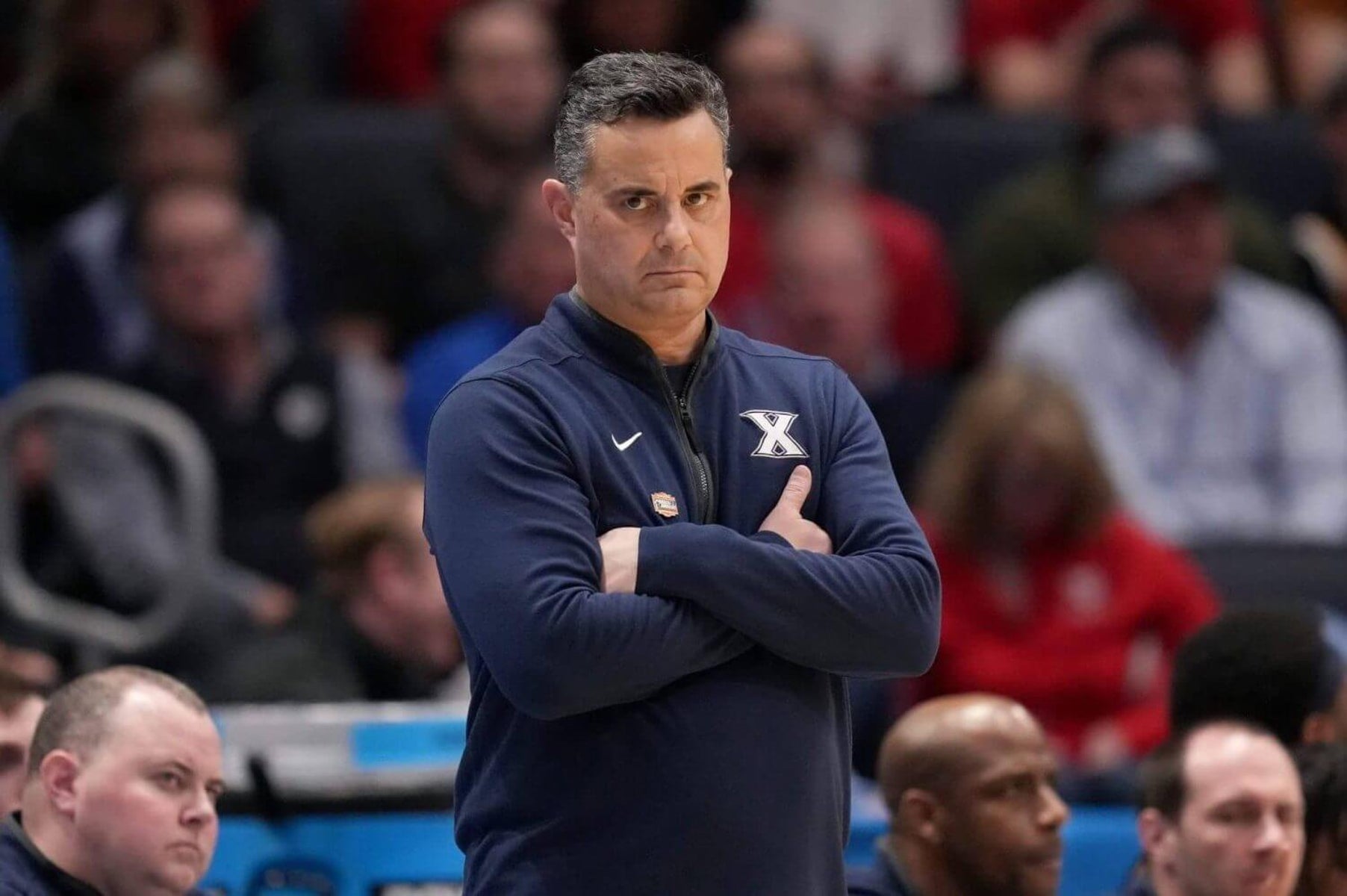Texas Basketball Coaching Candidates: Who Will Longhorns Pursue to Replace Rodney Terry?
After a season filled with highs and lows, the Texas Longhorns basketball program finds itself in a moment of transition. The program is now searching for a new head coach after parting ways with Rodney Terry, who had served as interim head coach for the past two seasons. Terry had taken over in a difficult situation, following the dismissal of Chris Beard amid controversy. Despite Terry’s efforts to guide the team through a turbulent period, the Longhorns have decided to go in a new direction.
The decision to move on from Terry has left fans, alumni, and players alike wondering who will be the next leader of this storied program. Texas basketball has a rich tradition, with a history of success both in the Big 12 Conference and on the national stage. The program has produced numerous NBA talents, including Kevin Durant, LaMarcus Aldridge, and Myles Turner, but has yet to capture an elusive national title. This coaching search represents a critical moment in the history of the program, and the decision will undoubtedly shape the future of Texas basketball.
Given the Longhorns’ significant resources, national visibility, and the high expectations surrounding the program, the job is one of the most coveted in college basketball. It is expected that Texas will pursue an experienced coach with a proven track record, someone who can take the program to the next level and bring consistent success.
Here is a breakdown of potential candidates that could be at the top of Texas’ coaching search list.
1. Sean Miller – Xavier University (Head Coach)
One of the most experienced and successful coaches in college basketball today, Sean Miller has long been a name associated with top-tier programs. After a successful stint at Xavier, where he turned the Musketeers into a perennial contender, Miller returned to his alma mater in 2022 to lead the Arizona Wildcats. Miller’s time at Arizona was marked by success, including multiple NCAA Tournament appearances and an Elite Eight run.
Although Miller’s tenure at Arizona was clouded by NCAA investigations and allegations of recruiting violations, he has proven himself to be one of the elite minds in college basketball. Under his leadership, Arizona became one of the most competitive teams in the Pac-12, producing NBA-caliber talent like DeAndre Ayton and Lauri Markkanen.
Miller has also demonstrated his ability to recruit elite talent and develop his players into NBA prospects, a skill that would be incredibly valuable at Texas, a program rich in basketball talent. Given his experience coaching at a national power and his success in the NCAA Tournament, Miller would be an ideal candidate for Texas, particularly considering the Longhorns’ desire to compete at the highest level.
2. Chris Beard – Former Texas Head Coach (Chris Beard’s Return?)
Though his tenure at Texas ended under difficult circumstances, the possibility of Chris Beard returning to Austin has been a subject of much speculation. After his highly publicized dismissal amid allegations of domestic violence, Beard was quickly hired by Ole Miss, where he was attempting to rebuild his career.
Beard’s first season at Texas was marked by remarkable success, as he led the Longhorns to a 22-12 record and a spot in the NCAA Tournament. Under Beard, Texas was known for its tough defense and disciplined play, and many believed he was the right man to bring Texas basketball to prominence. However, the off-the-court incident and the resulting fallout made his future with the program untenable.
While the controversy surrounding Beard’s departure remains a sensitive subject, it’s worth noting that his reputation as one of the top minds in college basketball has not been diminished by this incident. He remains one of the more accomplished coaches in the country, with a proven ability to lead teams to the NCAA Tournament, as demonstrated by his previous success at Texas Tech, where he led the Red Raiders to a national championship game in 2019.
Given his familiarity with the Texas program, and his ability to recruit and develop players, Beard could be a candidate if the situation and the university’s leadership felt comfortable with his return. However, this would be a difficult decision for both Beard and Texas, and it remains to be seen if the program will be willing to take that step.
3. Shaka Smart – Marquette University (Head Coach)
Shaka Smart is another former Texas coach who could find his way back to Austin, albeit under different circumstances. After a somewhat disappointing tenure at Texas, Smart left to become the head coach at Marquette University, where he has reinvigorated his career and brought the Golden Eagles to national prominence.
At Marquette, Smart has turned the program into a powerhouse in the Big East, with a style of play that emphasizes up-tempo offense and suffocating defense. Under Smart’s leadership, Marquette became one of the top teams in college basketball, securing high seeds in the NCAA Tournament and attracting top-tier talent.
Smart’s ability to adapt his coaching style to the talent available, along with his emphasis on defense, could make him a strong candidate for Texas. His previous experience in the Big 12 and his familiarity with the Texas basketball landscape also make him a coach worth considering.
Despite the initial struggles at Texas, where Smart was unable to build the consistent success many had hoped for, his success at Marquette has shown that he is capable of leading a program to new heights. A return to Texas could be seen as a redemption story, and Smart might be able to build on the lessons he learned in his first stint in Austin.
4. Nate Oats – University of Alabama (Head Coach)
Nate Oats is one of the brightest young coaches in college basketball today, and he has made a name for himself as the head coach of the Alabama Crimson Tide. Oats’ emphasis on high-powered, fast-paced basketball has revolutionized Alabama’s program, turning the Tide into one of the most dangerous teams in the country. Under his leadership, Alabama has consistently been a top-tier team in the SEC, competing for conference championships and making deep runs in the NCAA Tournament.
Oats’ success at Alabama, coupled with his innovative approach to offense and defense, makes him a very attractive candidate for Texas. He has proven that he can take a program to the next level and bring a level of intensity and energy that resonates with both players and fans. His recruiting skills are also noteworthy, as Oats has consistently landed top talent to Alabama, making the program one of the premier destinations for recruits.
Texas could look to Oats as a potential candidate due to his proven ability to build a competitive program, particularly in a major conference like the SEC. His up-tempo style of play would bring a fresh energy to the Longhorns’ program, which has sometimes struggled with consistency. Oats has shown he can win at the highest level, and his potential arrival in Austin would signal Texas’ intent to compete for national championships.
5. Mike Boynton Jr. – Oklahoma State University (Head Coach)
Mike Boynton Jr. is another intriguing candidate who has steadily built a strong program at Oklahoma State University. Known for his player development skills and defensive-minded approach, Boynton has transformed Oklahoma State into a tough, competitive team in the Big 12 Conference.
Boynton’s ability to develop talent is one of the primary reasons why he could be a strong candidate for Texas. Under his leadership, Oklahoma State has consistently competed at a high level, despite not having the same resources or recruiting advantages as some of the other Big 12 programs. His ability to make the most of his roster and maximize player development would be invaluable at Texas, a program that regularly recruits top-tier talent.
Boynton’s experience in the Big 12 is also a major plus, as he understands the dynamics and challenges of coaching in one of the most competitive basketball conferences in the country. While he may not have the same national profile as some of the other candidates, Boynton’s track record at Oklahoma State and his potential to build a championship-caliber program at Texas make him a strong candidate.
6. Jerod Haase – University of Stanford (Head Coach)
Jerod Haase is another name that could emerge as a candidate for the Texas job. Haase, who has been the head coach at Stanford University since 2016, has done a solid job rebuilding the Cardinal program into a competitive team in the Pac-12 Conference. While he hasn’t yet achieved the level of success some expected at Stanford, Haase’s ability to recruit and his defensive coaching philosophy would make him an attractive option for Texas.
Haase’s background includes stints as an assistant at Kansas, where he worked under Bill Self and gained invaluable experience working with elite-level talent. He is known for his emphasis on team-oriented play and defense, which aligns with the values that Texas fans and administration are likely looking for in a coach. While Haase’s resume isn’t as extensive as others on this list, his success at Stanford and his coaching acumen make him a name to watch in the search for Texas’ next head coach.
The Future of Texas Basketball
The Texas Longhorns basketball program is at a crossroads, and the search for a new head coach is crucial in determining the future of the team. With a roster full of talent and a program with abundant resources, Texas is a destination job that will attract some of the best and brightest minds in college basketball. Whether it’s a proven coach like Sean Miller or a rising star like Nate Oats, the decision will have a lasting impact on the direction of the program.
Whoever Texas decides to hire, one thing is clear: the Longhorns will be looking for a coach who can take the program to the next level, compete for national titles, and continue to build on the legacy of success that has defined Texas basketball for decades. The future is bright for Texas, and the next hire will be key to unlocking the program’s full potential.



